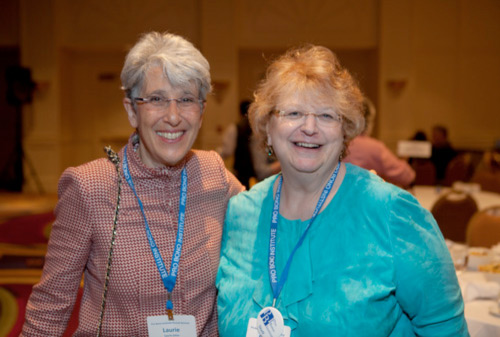In keeping with our goal of bringing the most timely and relevant speakers to the Seminar/Forum, the Pro Bono Institute (PBI) hosted a number of sessions addressing cutting edge topics. From the “Crisis in the Courts” to “Pro Bono and the Crisis in Indigent Defense” to the Obama Administration’s ambitious goals aimed at tackling the challenges of access to justice and new pro bono opportunities, these sessions focused on key emerging issues facing pro bono practitioners across the spectrum.
The “Crisis in the Courts” session, featuring the Honorable Laurie D. Zelon, Honorable Robert Katzmann, and Thomas Gottschalk, of counsel at Kirkland & Ellis LLP, a Signatory to the Law Firm Pro Bono Challenge®, faced head-on the stress that the federal and state systems are under. The panel discussed the disturbing results of dwindling funding resulting in court personnel being furloughed on a regular basis in some states and what pro bono work can do to address some of these needs. For instance, Judge Katzmann noted that only 40 percent of immigrants have representation, presenting an opportunity for pro bono counsel to make a serious impact. The session also addressed possible solutions, including whether some matters could be removed from the docket, managed through mediation and other extrajudicial forms of resolution. Other possibilities included courts’ using deferred associates as research attorneys and having volunteer, temporary judges hear certain types of cases.
Another challenge is the “Crisis in Indigent Defense.” As the demand for indigent defense resources grows and the funding dwindles, the promise of Gideon v. Wainwright is in jeopardy. Philip Horton, co-chairman, pro bono committee at Arnold & Porter LLP, a Signatory to the Law Firm Pro Bono Challenge®, Rick Jones, deputy director of the Neighborhood Defender Services of Harlem, Lynn Overmann, senior advisor, Office of Justice Programs at the U.S. Department of Justice, and Judge Zelon each brought unique perspectives to this lively session assessing the crisis and what law firms and legal departments can do to provide solutions. One challenge is that clients have a genuine lack of faith in the system, but law firms have the unique power to change their perception through involvement in cases, in turn building trust in the system. Jones noted that criminal defense work is daunting for those who don’t “live it,” but also pointed out that law firms in particular are equipped with the resources to address the problem head on. Firms can also help by providing externship programs, deferred associates, and by having dedicated projects that are prepared to deal with these kinds of cases. On a larger scale, firms can challenge the constitutionality of an underfunded system, addressing policy and economic shortcomings that weaken the system.
Poised to address these and myriad other challenges are programs developed and proposed by the Obama Administration. In the session, presented by Bob Sheehan, pro bono partner at Skadden, Arps, Slate, Meagher & Flom LLP, a Signatory to the Law Firm Pro Bono Challenge®, Nestor Davidson, deputy general counsel at U.S. Department of Housing and Urban Development, and Laurence Tribe, professor at Harvard Law School, participants discussed increasing access to justice as a priority of the Administration. Recently appointed to lead the newly created Access to Justice Initiative within the Department of Justice, Tribe has been charged with elevating matters impacting access while taking concrete steps toward addressing them. These efforts include using the growing public policy resources of firms and legal departments to engage in policy advocacy at the agency and administrative level.
This and future issues of the Wire will highlight notable Seminar/Forum sessions. In addition, later this spring PBI will again offer a “Best of the Seminar/Forum” Webinar Series making selected topical sessions available to our Member Law Firms free of charge and to others for a nominal fee. CLE credit may be available.

Judge Laurie Zelon and Esther Lardent

